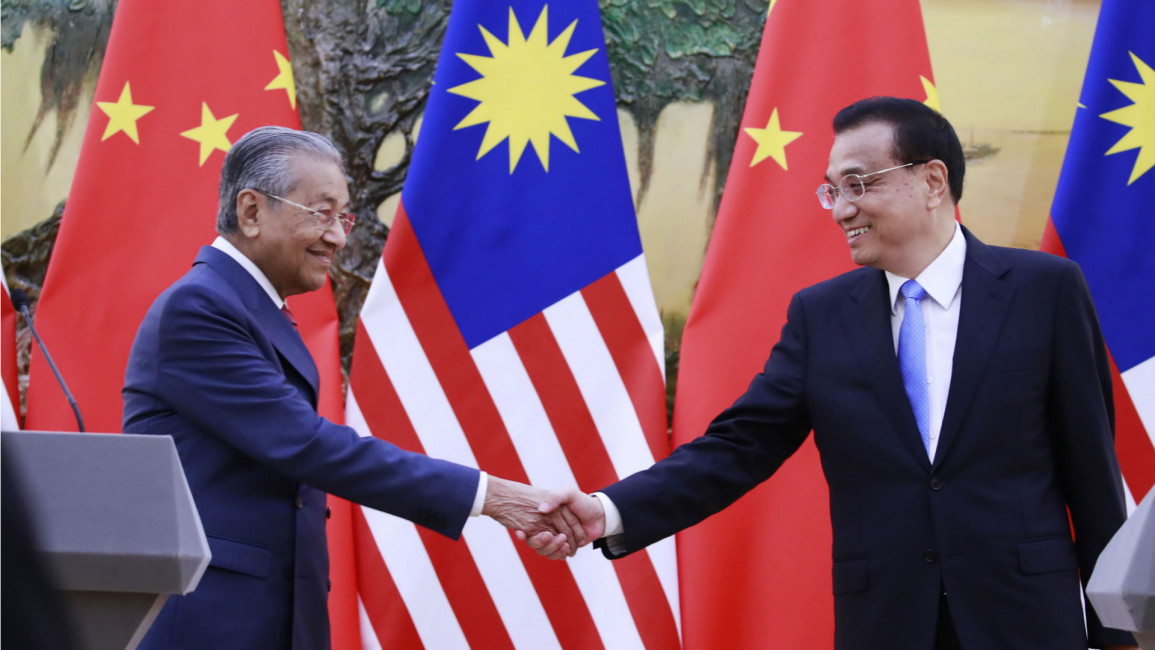Malaysia looks to China to solve economic problems
The 93-year-old, serving as premier for the second time after his shock election victory in May, has railed against a series of deals struck with Chinese state-owned companies by the administration of toppled leader Najib Razak.
Former leader Razak stands accused of corruption and plundering the state investment fund, 1MDB.
Billions of dollars were allegedly stolen from the fund in a sophisticated fraud and used to buy everything from artworks to high-end real estate. Nearly $700 million has appeared in the ousted leader's personal bank accounts while billions more remain unaccounted for.
Mahathir's government has suspended China-backed projects worth more than $22 billion, including a major rail link, and he had pledged to raise the issue of what he views as unfair terms related to some of the deals on his five-day trip.
Speaking at a press conference with Premier Li Keqiang at Beijing's Great Hall of the People, Mahathir thanked China for agreeing to increase imports of speciality agricultural products, such as durian.
Despite welcoming the agreements, Mahathir also added that he expected more from the world's second-largest economy.
"I believe that China will look sympathetically towards the problems that we have to resolve and perhaps help us in resolving some of our internal fiscal problems," he said.
Mahathir, who is expected to meet President Xi Jinping Monday afternoon, also warned that wealthy countries should not use their riches to take advantage of less developed nations.
"There is a new version of colonialism happening because poor countries are unable to compete with rich countries just in terms of open free trade. It must also be fair trade," he said.
Li said he hoped the two countries would be able to achieve "balance" in their trade relations.
During his nine-year rule, Najib was accused of cutting quick deals with Beijing in return for help paying off debts linked to a massive financial scandal that ultimately helped bring down his long-ruling coalition.
Razak's ruling coalition, Barisan Nasional, suffered an election loss after Mahathir Mohamad, a former leader of the BN party came out of retirement and went head-to-head against his protege Najib Razak for the position of prime minister.
While many were expecting an easy victory for Razak's BN coalition - who had held onto power for six decades by controlling the media, government, police and electoral apparatus - Mahathir's surprise return caused what opposition dubbed a "Malay tsunami" and ousted BN from its tight grip on power.
The shock victory only highlighted the depth of disillusionment the country had with former leader Razak, who had previously denied any wrongdoing and said the money was a donation from the Saudi royal family.
Mahathir is now trying to reduce Malaysia's national debt, which has ballooned to some $250 billion.



